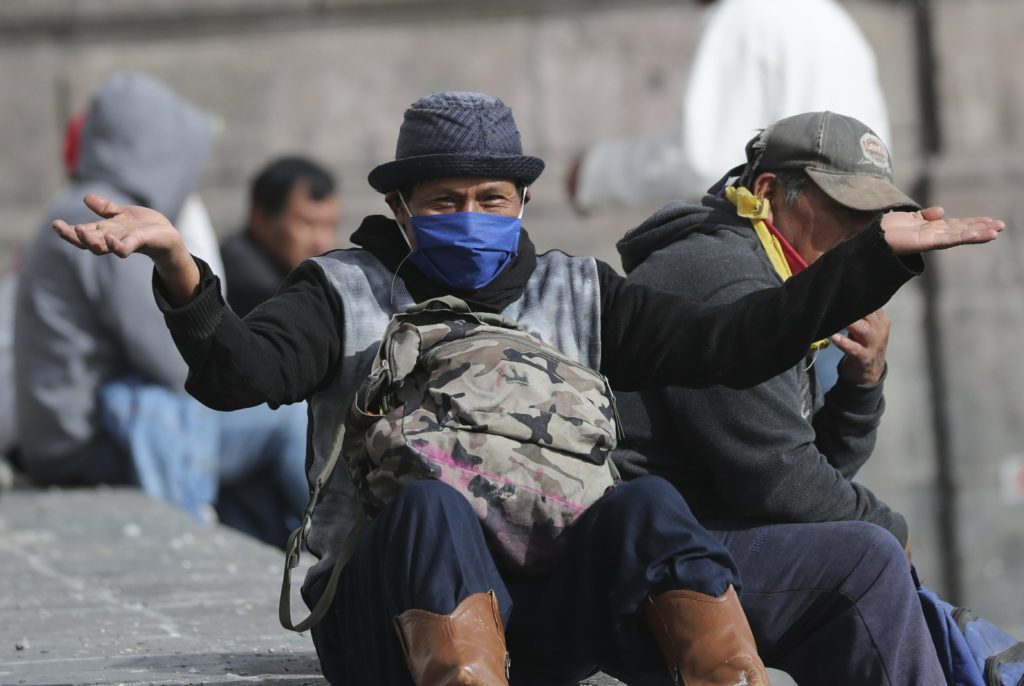RIO DE JANEIRO, BRAZIL – The economic reactivation of Latin America will have to wait. A new report from the Economic Commission for Latin America and the Caribbean (ECLAC) and the Pan American Health Organization (PAHO) alerts that unless the Covid-19 contagion curve is flattened as soon as possible, the consequences will be devastating.
The region counts 4.5 million positive cases of the disease and almost 190,000 deaths, in addition to issues such as an over 50 percent rate of labor informality, unemployment, poverty, inequality, and poor healthcare systems. In a similar scenario, any chance of a rebound is speculative.
“On the social and economic level, the pandemic has unleashed an unprecedented economic and social crisis, and unless urgent measures are taken, it could turn into a food and humanitarian crisis,” cautions the document, presented by the commission on Thursday at its headquarters in Santiago through a videoconference.

The economic outlook described by both the ECLAC and PAHO for Latin America is disappointing. The recession triggered by the pandemic “is the most brutal in history”, with an average decline of over nine percent in the national GDPs in 2020. The remaining indicators will follow this collapse: unemployment will reach 13.5 percent, poverty will rise seven points to 37.3 percent, and inequality will worsen further, with a 4.9-point rise in the Gini index.
“The high inequality levels coupled with high poverty, informality, lack of social protection, and limited access to timely and quality healthcare explain the high social costs that the pandemic is causing in the region,” the report says.
Structural fragilities impact the poorest most severely, who cannot allocate their own resources to pay for extraordinary healthcare expenses, while their income suffers from the economic shutdown.
ECLAC estimates that 95 million people have to pay for healthcare expenses out of their own pockets and that at least 12 million will become even poorer because of these disbursements. The urgency should make the priorities clear. The ECLAC executive secretary, Alicia Bárcena, warns that “there is no dilemma between healthcare or economy because healthcare comes first.”
The pandemic has exposed the vulnerability of public healthcare systems, the result of years of low investment: four percent of GDP, against six percent recommended by the W.H.O. “Covid-19 has exposed shortcomings in Latin America’s healthcare systems. They are segmented and fragmented systems,” Bárcena says. The situation is so serious that PAHO director Carissa Etienne says the region could “lose several years of healthcare progress in just a few months”.
“We face an unprecedented challenge. We need to create economic and health conditions in order to leave no one behind,” she says.
ECLAC is testing solution models based on public support for the most vulnerable sectors. “We need to change our development model, our paradigm, make it more sustainable and habitable,” says Bárcena. “The major challenge,” she adds, “is to build a new pact for a welfare state with wide-ranging social policies. For instance, women in charge of care should be granted a basic income, because they are doing is a service to society.”
Among the State policies required to counter the impact of this crisis, ECLAC proposes an emergency basic income, a bonus against hunger and plans to protect the productive sector, as well as the consolidation of universal social protection systems and the adoption of progressive fiscal policies.
Source: El País

